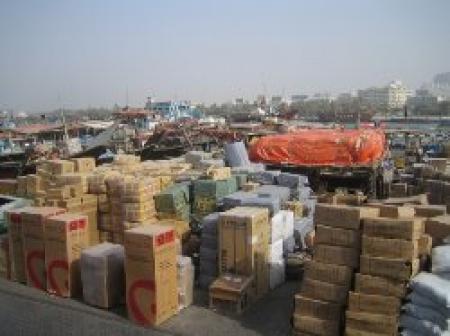ID :
92122
Sun, 11/29/2009 - 16:00
Auther :
Shortlink :
http://m.oananews.org//node/92122
The shortlink copeid
EU states profiting from German sanctions against Iran: daily

Berlin, Nov 28, IRNA -- Several European Union states, among them Sweden, Poland, the Netherlands and Austria, are greatly benefiting from German sanctions against Iran, the business daily Handelsblatt reported Saturday.
German firms are seriously concerned that Chancellor Angela Merkel's
controversial policy of discouraging investments in Iran will lead to losing Iran's lucrative market to other EU competitors as well as other countries like China, Russia, India and Malaysia.
Although Germany is still Iran's biggest trading partner in Europe, German exports to Iran dropped 14.8 percent to 1.6 billion euros during the first half of 2009.
Meanwhile, other countries, notably Sweden, the Netherlands, Poland and
Austria, have expanded their share of trade with Iran.
German companies have repeatedly expressed deep frustration with Merkel's sanction policy against Iran amid fierce political pressure by the US and the Zionist regime.
German companies have stepped up their criticism of the German government for imposing unilateral sanctions against the Islamic Republic of Iran, saying their business interests have been severely affected by the disputed political move.
The Managing Director of the Federation of German Wholesale and Foreign Trade (BGA) Jens Nagel has repeatedly lambasted "unilateral sanctions (against Iran) as totally incomprehensible."
Nagel expressed mounting concern that German firms were gradually losing the Iranian market to Asian competitors.
The BGA official's assessment was echoed by the Managing Director of the German Near And Middle East Association (Numov) Helene Rang who made clear that a further tightening of sanctions against Iran would "not solve the problem."
"The sanctions are backfiring," she was quoted as saying.
The head of the Federation of German Industries (BDI), Juergen Thumann warned earlier that German companies are to lose their good business contacts with Iran which they have developed over decades as a result of the continuing Zionist and US-led political pressure.
German firms are seriously concerned that Chancellor Angela Merkel's
controversial policy of discouraging investments in Iran will lead to losing Iran's lucrative market to other EU competitors as well as other countries like China, Russia, India and Malaysia.
Although Germany is still Iran's biggest trading partner in Europe, German exports to Iran dropped 14.8 percent to 1.6 billion euros during the first half of 2009.
Meanwhile, other countries, notably Sweden, the Netherlands, Poland and
Austria, have expanded their share of trade with Iran.
German companies have repeatedly expressed deep frustration with Merkel's sanction policy against Iran amid fierce political pressure by the US and the Zionist regime.
German companies have stepped up their criticism of the German government for imposing unilateral sanctions against the Islamic Republic of Iran, saying their business interests have been severely affected by the disputed political move.
The Managing Director of the Federation of German Wholesale and Foreign Trade (BGA) Jens Nagel has repeatedly lambasted "unilateral sanctions (against Iran) as totally incomprehensible."
Nagel expressed mounting concern that German firms were gradually losing the Iranian market to Asian competitors.
The BGA official's assessment was echoed by the Managing Director of the German Near And Middle East Association (Numov) Helene Rang who made clear that a further tightening of sanctions against Iran would "not solve the problem."
"The sanctions are backfiring," she was quoted as saying.
The head of the Federation of German Industries (BDI), Juergen Thumann warned earlier that German companies are to lose their good business contacts with Iran which they have developed over decades as a result of the continuing Zionist and US-led political pressure.





